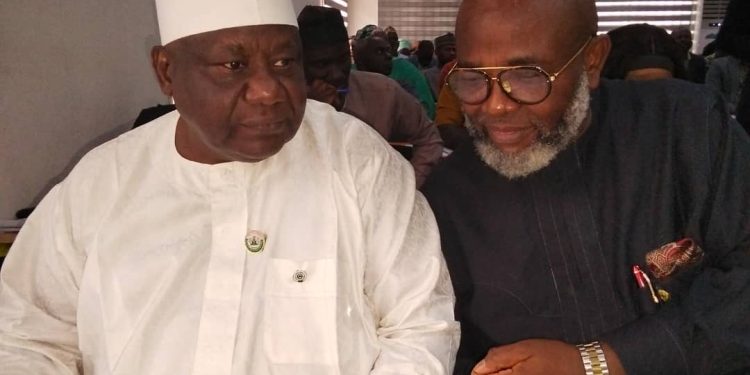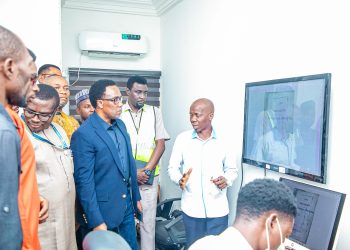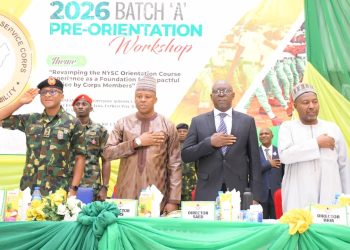By Nkechi Eze
The Executive Chairman of the Fiscal Responsibility Commission (FRC), Victor Muruako, Esq., has called for the swift validation of the newly developed Fiscal Responsibility Code of Conduct, describing it as an indispensable instrument for enforcing the Fiscal Responsibility Act (FRA) 2007 and strengthening fiscal discipline in Nigeria.
Deputy Director Strategic Communications Directorate FRC, Bede Ogueri Anyanwu in an official signed statement disclosed that Muruako while speaking at a high-level stakeholders’ meeting in Abuja, welcomed representatives from Ministries, Departments and Agencies (MDAs), development partners, civil society organisations, and virtual participants. He noted that the proposed Code of Conduct would serve as a vital toolkit to close enforcement gaps in fiscal governance, especially in areas where the FRA does not prescribe explicit sanctions for violations.
“We regard this document as a very vital and indispensable toolkit for the effective enforcement of the spirit and letters of the Fiscal Responsibility Act,” Muruako said. He acknowledged the support of the European Union, the Rule of Law and Anti-Corruption (RoLAC) Programme, International IDEA, and the Centre for Social Justice (CSJ), commending CSJ’s Lead Director, Eze Onyekpere, Esq., for his “zealous commitment” to promoting fiscal responsibility at both national and sub-national levels.
The FRC chairman reiterated that the Commission’s four core mandates prudent resource management, macroeconomic stability, accountability, and transparency, align with its role as Nigeria’s fiscal council, in line with global standards recognised by the World Bank, the OECD, and the IMF. He explained that the Fiscal Responsibility Code of Conduct is designed to reduce risks in public financial management, including budget fraud and corruption, enhance accountability and transparency in fiscal decision-making, provide ethical guidelines that balance efficiency with social responsibility, and foster fiscal discipline to ensure that borrowing is restricted to capital projects and human development.
Muruako expressed concern over the absence of punitive measures in certain sections of the FRA 2007, warning that this gap has sustained a “regime of impunity” in public finance management. He reaffirmed the Commission’s readiness to work with partners to ensure the Code’s effective implementation.
In his presentation, Eze Onyekpere of the CSJ argued that even partial implementation of the Code’s provisions could significantly improve Nigeria’s fiscal governance. He criticised banks and state governments for engaging in borrowing practices that contravene the FRA 2007.
Delivering the keynote address, the Director-General of the Bureau for Public Service Reform, Dr. Dasuki Arabi, commended the FRC for its commitment to transparency and prudence in fiscal operations. Representatives of the Economic and Financial Crimes Commission (EFCC), including Ibrahim Shaliza, Director of Fraud Risk Assessment and Control, and Imarha Oghenenyerowo Reuben, Chief State Counsel from the Federal Ministry of Justice, as well as Peter Owuru, Special Adviser representing the Permanent Secretary, Federal Ministry of Finance, pledged their agencies’ full cooperation in enforcing fiscal responsibility across government institutions.














